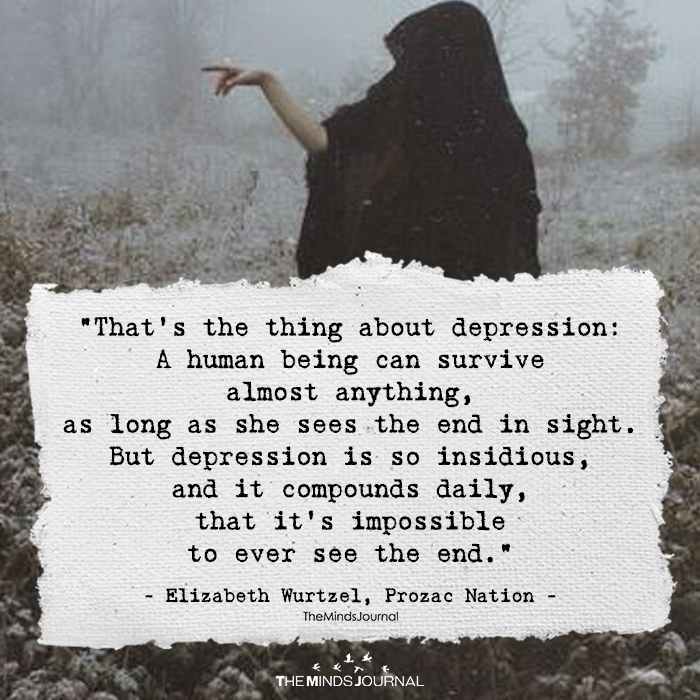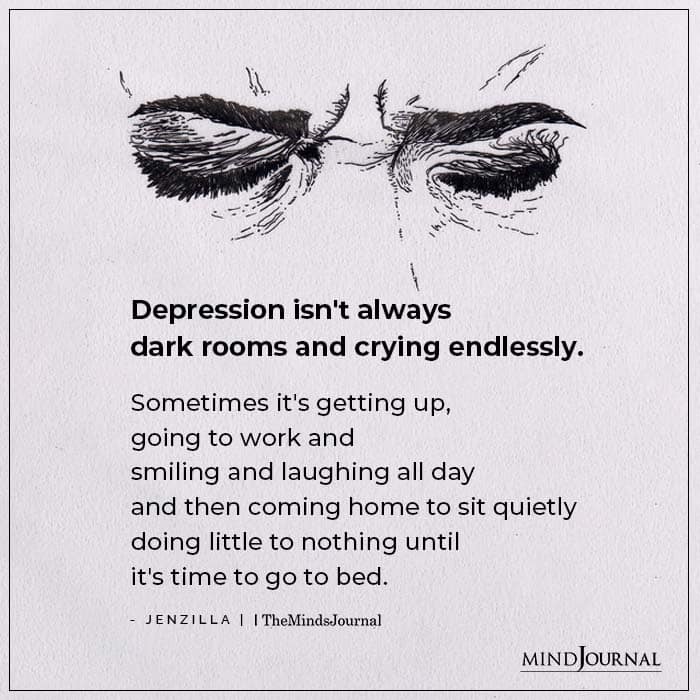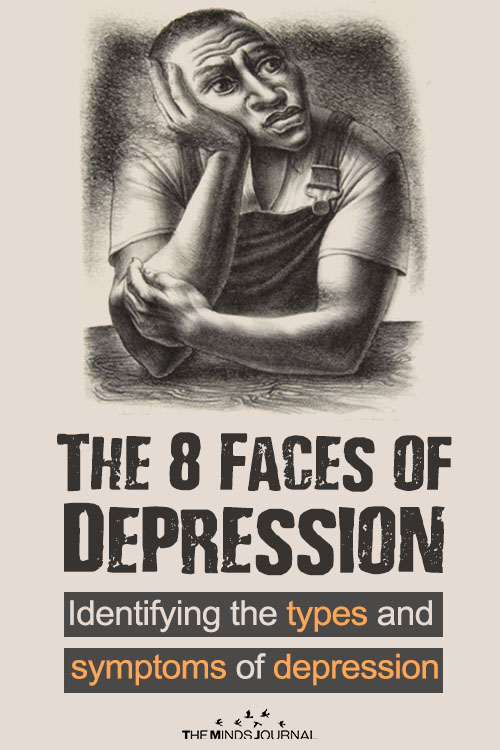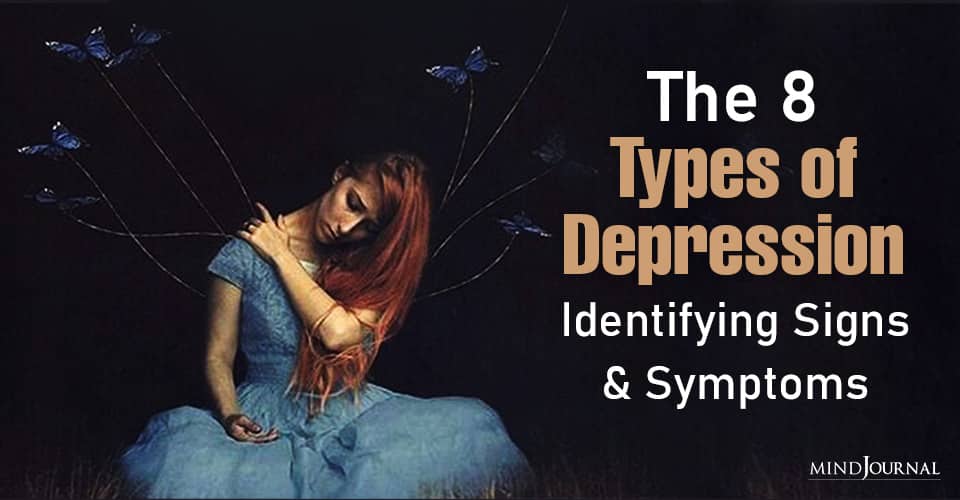Depression can manifest in the myriad number of forms and can be triggered by a number of causes. Identifying the types and symptoms of depression is the first step toward healing.
The sudden deaths of iconic fashion designer Spade and celebrity chef Bourdain have left the entire world in shock and focused a bright light on the tragedy of suicide.
According to a report published by Centers for Disease Control and Prevention, 45000 people in the United States committed suicide in 2016 alone, making suicide the 10th leading cause of death.
Social media has conditioned us to display only happy and shiny parts of our lives. In our bid to keep up with Joneses we have learned to put up a brave and happy face despite how we are feeling inside.
It has resulted in a steep increase in the number of individuals who are high functioning and successful but suffer from crippling anxiety or severe depression in silence.
According to the Anxiety and Depression Association of America, more than 18.6 percent of Americans suffer from anxiety disorders and 6.7 percent live with depression.
Depression is a serious illness and it is time we start to understand the nature of the illness and remove the stigma around mental health that causes many individuals to suffer in silence.
Depression is not just about feeling sad or lonely. What separates depression from sadness is that the latter is about melancholy while depression persists.
A person suffering from depression struggles with overwhelming feelings of grief, hopelessness, worthlessness, and emptiness on daily basis. The severity of these feelings can actually rob the person of the simple inertia to even perform day to day functions.

Depression can manifest in the myriad number of forms and can be triggered by a number of causes. Identifying the types and symptoms of depression is the first step toward healing.
Different types of Depression and healing modality:
1) Situational depression
Situational depression is caused when you have trouble dealing with a sudden or stressful event in your life like divorce, loss of a job or loved one or while changing careers or moving to a new country.
The psychologists may refer to this as “Stress Response syndrome” and they can help you in this transition phase through counseling and psychotherapy.
Read What Is Schizoid Personality Disorder?
2) Major Depressive Disorder
Major Depressive Disorder is the most common types of depression.
If you feel any five or more of the below-mentioned symptoms over a persistent period of time lasting at least two weeks, you are likely suffering from Major Depressive Disorder:
- Insomnia or oversleeping
- The feeling of hopelessness or pessimism
- Feelings of guilt, shame or worthlessness
- Feelings of irritability or restlessness
- Overeating or loss of appetite
- Loss of interest in activities that were once enjoyed
- Persistent feelings of emptiness and sadness.
The severity of these symptoms will vary from person to person and in extreme cases, it can cripple your ability to work, sleep, study, eat or experience life in general.
This types of depression can be treated by a combination of psychotherapy or medications like Antidepressants.
3) Pain/Injury/ Illness related
People suffering from chronic illness or debilitating diseases often face depression or anxiety caused due to the emotional and physical distress of going through these diseases.
Talk therapy and medication can go a long way in treating illness related depression.
Read Eating Disorders: Ways to Properly Deal With Food Anxiety
4) Peripartum (Postpartum) Depression
Women who have major depression in the weeks and months after childbirth may have Peripartum (postpartum) depression.
This is different from normal baby blues. Massive hormonal and physical changes and changes in lifestyle and responsibility can cause stress and depression for some mothers. Almost 10-15% of women experience postpartum depression.
This can be treated with counseling support and psychotherapy.
5) Seasonal Affective Disorder
The seasonal affective disorder is a type of depression that happens in particular seasons like winters or monsoons. It is believed that less sunlight can lead to the change in mood and irritability and therefore many people feel blue at the onset of winters or monsoons.
SAD can be treated with antidepressants or light therapy which requires you to sit in front of a special bright light box for about 15-30 minutes each day.
6) Trauma-based or Post Traumatic Stress Disorder (PTSD)
PTSD is a mental disorder that can develop when a person experiences or witnesses traumatic events such as sexual assault, warfare, accident or other life-threatening situations.
Symptoms may include nightmares, anxiety or panic triggered by events that trigger the traumatic memory.
It can be cured by talk therapy, antidepressants and anti-anxiety medications.

7). Substance-Induced Mood Disorder (SIMD)
SIMD is caused due to substance abuse. Certain drugs have the potential to gravely affect your mental health. The adverse effects of these drugs can result in manic or chronic depression.
Rehab, medications and talk therapy can help all cure SIMD.
Read What Is Histrionic Personality Disorder and How To Manage This Intense Need for Attention
8) Psychotic Disorder
People with psychotic depression suffer from severe depression along with “psychotic” symptoms, such as:
- Hallucinations (seeing or hearing things that aren’t there)
- Delusions (false beliefs)
- Paranoia (wrongly believing that others are trying to harm you)
It can be treated by a combination of talk therapy, antidepressants, and antipsychotic drugs.
Read Powerful and Soul Touching Message By Chester Bennington’s Wife, Talinda Bennington about Depression
If you notice any of these symptoms being experienced by any of your friends, family members or closed ones, please reach out to them.
They may not even know they are suffering from depression or may not reach out due to feelings of guilt or shame or hopelessness.
“Express empathy for the person and offer to help them get connected to people that can help them with how they are feeling. Help them develop a plan to get help and follow-through with them until they get connected. People often don’t know theay are depressed or what’s wrong with them and may need your help getting connected to the appropriate healthcare people that can treat their condition.”
– Kevin Gilliland (Psy.D.), the clinical psychologist at Innovation 360, Dallas.
The passage below was taken from this helpful article by Captain Awkward (Jennifer Peepas):
I think one thing you can do to help your friends who are depressed is to reach out to them not in the spirit of helping, but in the spirit of liking them and wanting their company. “I’m here to help if you ever need me” is good to know, but hard to act on, especially when you’re in a dark place. Specific, ongoing, pleasure-based invitations are much easier to absorb. “I’m here. Let’s go to the movies. Or stay in and order takeout and watch some dumb TV.” “I’m having a party, it would be really great if you could come for a little while.” Ask them for help with things you know they are good at and like doing, so there is reciprocity and a way for them to contribute. “Will you come over Sunday and help me clear my closet of unfashionable and unflattering items? I trust your eye.” “Will you read this story I wrote and help me fix the dialogue?” “Want to make dinner together? You chop, I’ll assemble.” “I am going glasses shopping and I need another set of eyes.” Remind yourself why you like this person, and in the process, remind them that they are likable and worth your time and interest.
Talk to the parts of the person that aren’t being eaten by the depression. Make it as easy as possible to make and keep plans, if you have the emotional resources to be the initiator and to meet your friends a little more than halfway. If the person turns down a bunch of invitations in a row because (presumably) they don’t have the energy to be social, respect their autonomy by giving it a month or two and then try again.
Keep the invitations simple; “Any chance we could have breakfast Saturday?” > “ARE YOU AVOIDING ME BECAUSE YOU’RE DEPRESSED OR BECAUSE YOU HATE ME I AM ONLY TRYING TO HELP YOU.” “I miss you and I want to see you” > “I’m worried about you.”
A depressed person is going to have a shame spiral about how their shame is making them avoid you and how that’s giving them more shame, which is making them avoid you no matter what you do. No need for you to call attention to it.
Just keep asking. “I want to see you” “Let’s do this thing.” “If you are feeling low, I understand, and I don’t want to impose on you, but I miss your face. Please come have coffee with me.” “Apology accepted. ApologIES accepted. So. Gelato and Outlander?”
Time, attention, love, enjoyment > help.
—Captain Awkward, How do I reach out to my friends who have depression?











Leave a Reply